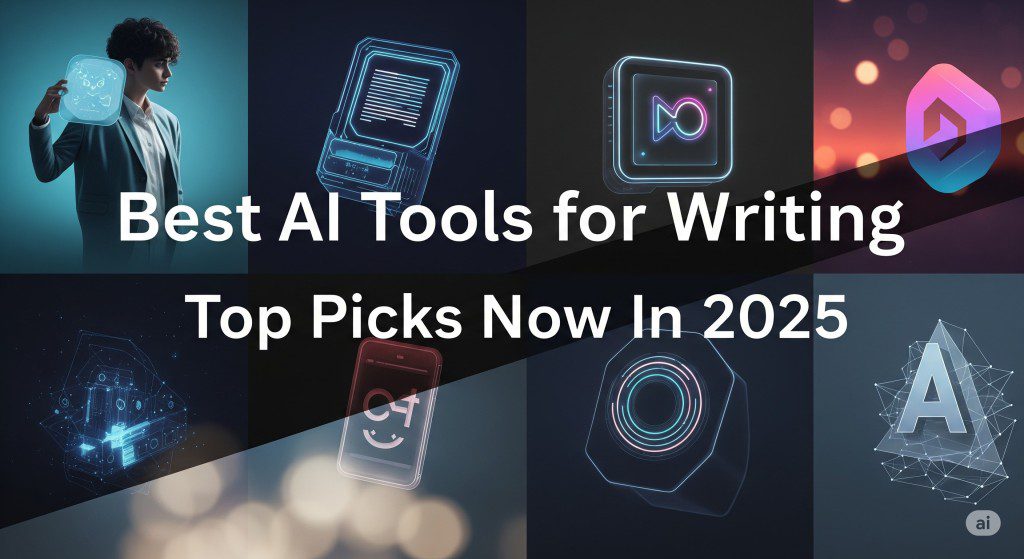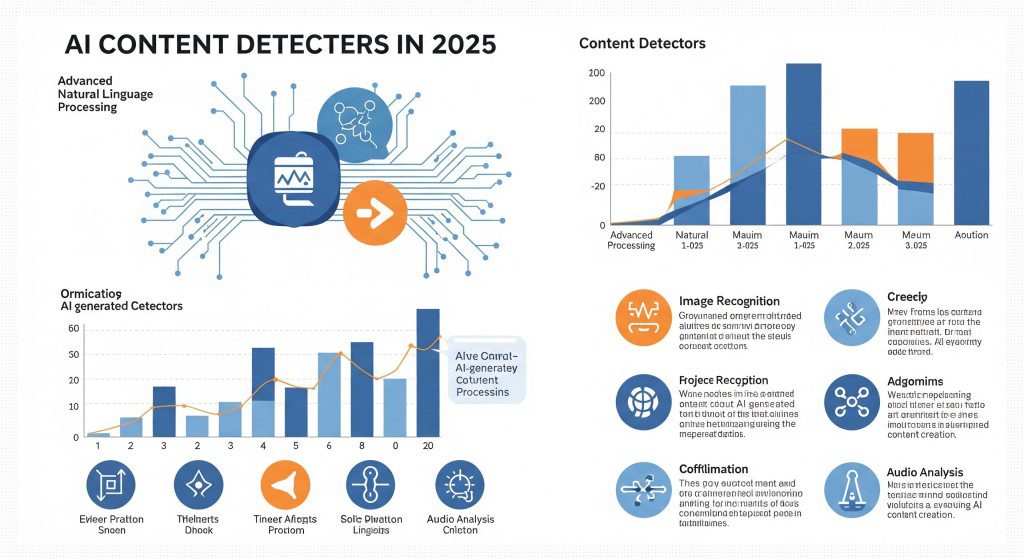Table of Contents
ToggleIntroduction to AI in Marketing: Revolutionizing Strategies
AI marketing is revolutionizing how businesses engage with their audiences. By leveraging artificial intelligence, marketers can analyze data, predict trends, and automate tasks with unmatched precision.
What Are AI Tools for Marketing?
AI marketing tools use machine learning and data analytics to optimize campaigns. Examples include chatbots, predictive analytics, and AI-powered content generators—all designed to enhance efficiency and personalization.
Why Businesses Are Adopting AI in Digital Marketing
Companies embrace AI marketing to stay competitive. It reduces manual effort, improves targeting, and delivers real-time insights, making campaigns more effective and cost-efficient.
Benefits of AI in Marketing Campaigns
- Personalization: AI tailors content to individual preferences.
- Automation: Streamlines repetitive tasks like email marketing.
- Predictive Analytics: Forecasts trends for smarter decisions.
- Enhanced ROI: Optimizes ad spend for better results.
From AI marketing platforms to automation tools, businesses of all sizes can harness AI-driven marketing insights for growth. Whether through chatbots or dynamic ad targeting, AI is reshaping the future of digital marketing.
Want to explore top AI marketing tools? Stay tuned for our next post on the best AI solutions for your business!
Understanding AI Marketing Tools: A Game-Changer for Businesses
AI marketing tools are reshaping how brands engage customers, optimize campaigns, and drive growth. From automation to hyper-personalization, these tools unlock smarter strategies with less effort.
Types of AI Marketing Tools
- Analytics: AI deciphers customer behavior and predicts trends (e.g., Google Analytics AI).
- Automation: Streamlines email, ads, and social media scheduling (e.g., HubSpot).
- Content Creation: Generates copy, images, and videos (e.g., Jasper, Canva AI).
- CRM: Enhances lead scoring and customer interactions (e.g., Salesforce Einstein).
- Personalization: Delivers tailored recommendations (e.g., Dynamic Yield).
How AI Transforms Traditional Marketing
AI eliminates guesswork by analyzing real-time data, automating repetitive tasks, and enabling hyper-targeted campaigns—boosting efficiency and ROI.
Key Features to Look For
- Scalability: Grows with your business.
- Integration: Works with existing tools (e.g., Shopify, Meta).
- User-Friendly Interface: No coding needed.
- Real-Time Insights: Instant performance tracking.
AI-powered marketing isn’t just for big brands—small businesses can leverage cost-effective tools for smarter campaigns. Ready to explore the best AI marketing software? Stay tuned for our top picks! 🚀
Best AI Tools for Marketing in 2025: Supercharge Your Strategy
AI marketing tools are no longer optional—they’re essential for staying competitive. From automating repetitive tasks to predicting customer behavior, AI-powered marketing helps businesses work smarter, not harder.
Here’s a breakdown of the best AI tools for marketing in 2025, categorized by use case, so you can find the perfect fit for your business.
3.1 AI Tools for Social Media Marketing
Managing multiple platforms? AI can help with scheduling, engagement tracking, and trend prediction—ensuring your content reaches the right audience at the right time.
Top Picks:
- Buffer AI – Automates posting and suggests optimal times.
- Hootsuite Insights – Analyzes sentiment and trends in real time.
- Predis.ai – Generates AI-powered social media creatives and captions.
Why It Matters: AI-driven social tools save hours while boosting engagement and reach.
3.2 AI Tools for Content Marketing
Creating high-quality, SEO-friendly content is faster with AI. These tools help with blog writing, copy generation, and SEO optimization.
Top Picks:
- Jasper AI – Generates persuasive marketing copy in seconds.
- SurferSEO – Optimizes content for search engines with data-driven insights.
- Copy.ai – Crafts social posts, emails, and ad copy effortlessly.
Why It Matters: AI content tools cut writing time in half while improving search rankings.
3.3 AI Tools for Email Marketing
Personalized emails drive conversions—AI makes it easy with smart segmentation, predictive send times, and automated campaigns.
Top Picks:
- Mailchimp AI – Suggests subject lines and dynamically segments audiences.
- HubSpot AI – Automates workflows and predicts customer actions.
- Omnisend – Optimizes send times for maximum open rates.
Why It Matters: AI ensures emails land in inboxes at the perfect moment, boosting click-through rates.
3.4 AI Tools for Advertising & PPC Campaigns
Maximize ad spend with AI-powered bid optimization, A/B testing, and budget management.
Top Picks:
- Albert AI – Automates cross-channel ad buying.
- Adzooma – Optimizes Google & Facebook Ads in real time.
- Revealbot – Uses AI to adjust ad spend for peak performance.
Why It Matters: AI eliminates wasted ad spend by constantly refining targeting and bids.
3.5 AI Tools for Customer Relationship Management (CRM)
AI-enhanced CRMs predict lead quality, automate follow-ups, and power chatbots for seamless customer interactions.
Top Picks:
- Salesforce Einstein – Scores leads and predicts churn risks.
- Zoho CRM AI – Automates tasks and suggests next-best actions.
- Drift – Uses AI chatbots to qualify leads 24/7.
Why It Matters: AI-driven CRMs turn data into actionable insights, improving conversions.
3.6 AI Tools for Marketing Analytics & Insights
Data overload? AI uncovers trends, analyzes sentiment, and predicts customer behavior—so you can make smarter decisions.
Top Picks:
- Google Analytics Intelligence – Automatically detects traffic anomalies.
- Crayon AI – Tracks competitor moves in real time.
- PaveAI – Turns Google Analytics data into plain-English insights.
Why It Matters: AI analytics tools reveal hidden opportunities and risks before competitors spot them.
How to Choose the Right AI Marketing Tool for Your Business
With countless AI marketing tools available, selecting the best one can feel overwhelming. The right choice depends on your budget, goals, and business size—here’s how to decide.
Key Factors to Consider
- Budget: Free tools (like HubSpot’s free tier) work for startups, while enterprises may need premium AI marketing platforms.
- Scalability: Will the tool grow with your business? Look for flexible pricing and features.
- Integration: Ensure compatibility with your CRM, email software, and analytics tools.
Free vs. Paid AI Tools
Free tools offer basic automation, while paid options (like Salesforce Einstein) provide advanced AI-driven insights and customization.
Small Business vs. Enterprise Case Studies
- A local bakery might use Canva AI for social media, saving hours on design.
- A Fortune 500 company could deploy Drift’s AI chatbots to handle 40% of customer queries.
The Bottom Line: Match the tool to your needs—don’t overpay for features you won’t use. Ready to explore options? Check out our top AI marketing tools breakdown next!
How to Choose the Right AI Marketing Tool for Your Business
Cutting through the noise of AI marketing tools requires smart evaluation. Your perfect match depends on three key factors:
1. Budget & Business Needs
- Startups: Try free tiers (HubSpot, Mailchimp) for basic automation
- Growing businesses: Mid-range tools (Jasper, SurferSEO) balance cost and features
- Enterprises: Invest in robust platforms (Salesforce Einstein) for deep analytics
2. Must-Have Features
✔️ Seamless integration with existing tech stack
✔️ Scalability to handle future growth
✔️ Intuitive interface your team will actually use
3. Real-World Success Stories
- Local retailer: Used Canva AI to triple social engagement
- E-commerce brand: Slashed ad costs 30% with Revealbot’s AI optimization
- Enterprise: Automated 50% of customer service via Drift’s chatbots
Pro Tip: Always test-drive tools with free trials before committing. The best AI marketing software feels like a natural extension of your team – not another complication.
The Hidden Challenges of AI in Marketing (And How to Avoid Them)
While AI marketing tools offer incredible advantages, smart marketers know there are real risks to consider before diving in.
1. Data Privacy & Security Risks
AI thrives on customer data – but breaches can destroy trust. Ensure your AI marketing platform complies with GDPR/CCPA and encrypts sensitive information.
2. Creativity vs. Automation Trap
Many brands over-rely on AI-generated content, losing their human touch. The sweet spot? Use AI-powered marketing for repetitive tasks, but keep strategy and brand voice human-led.
3. Ethical Dilemmas to Watch
- Are your AI algorithms unintentionally biased?
- Is hyper-personalization crossing into creepiness?
- Who’s accountable for AI mistakes in campaigns?
The Solution? Implement AI thoughtfully:
✔️ Regular compliance audits
✔️ Human oversight on all AI outputs
✔️ Transparent data usage policies
The Future of AI Marketing: 4 Game-Changing Trends
AI marketing is evolving at lightning speed – here’s what’s coming next that every marketer should prepare for:
1. Hyper-Personalized Content at Scale
Next-gen generative AI will craft unique messaging for each customer in real-time, analyzing browsing history, purchase patterns, and even mood indicators.
2. Voice Search Revolution
With 50% of searches now voice-based, AI tools will optimize content for conversational queries and brand-specific voice assistants.
3. Immersive AR/VR Experiences
AI-powered virtual showrooms and try-on experiences will become standard, blending digital and physical shopping seamlessly.
4. Predictive Campaign Optimization
AI won’t just analyze data – it will anticipate market shifts and auto-adjust campaigns before trends emerge.
Why This Matters Now:
Early adopters of these AI marketing tools are seeing 3-5x higher engagement rates. The future belongs to brands that combine AI efficiency with human creativity.
AI Marketing: Key Takeaways & Next Steps
Why AI Marketing Tools Matter
From hyper-personalization to predictive analytics, AI-powered marketing is transforming how brands engage customers. The right tools can:
✔️ Boost campaign performance by 30-50%
✔️ Save 10+ hours weekly on repetitive tasks
✔️ Deliver data-driven insights in real-time
The Future of AI in Marketing
Expect smarter automation, voice/visual search optimization, and AI-human collaboration to become standard. Brands ignoring AI marketing tools risk falling behind competitors.
Ready to Get Started?
1️⃣ Audit your needs – Identify 1-2 pain points AI could solve
2️⃣ Start small – Test free tools like Canva AI or ChatGPT
3️⃣ Scale strategically – Gradually integrate paid solutions like Jasper or HubSpot
“The best time to implement AI was yesterday. The second-best time is today.”
The “best” depends on your needs. For all-in-one solutions, HubSpot AI leads the pack. For content creation, Jasper and Copy.ai dominate.
N, but marketers using AI will replace those who don’t. AI excels at data crunching and automation, while humans drive strategy and creativity.
Costs vary wildly. Many quality options, like Canva AI and Mailchimp’s free tier, offer great starter features. Enterprise solutions (Salesforce Einstein) require bigger budgets.
By analyzing thousands of data points in real-time, AI spots patterns humans miss – enabling hyper-personalized messaging at scale.
Canva AI for design
ChatGPT for content ideas
Google Analytics AI for insights
HubSpot Free CRM for automation

